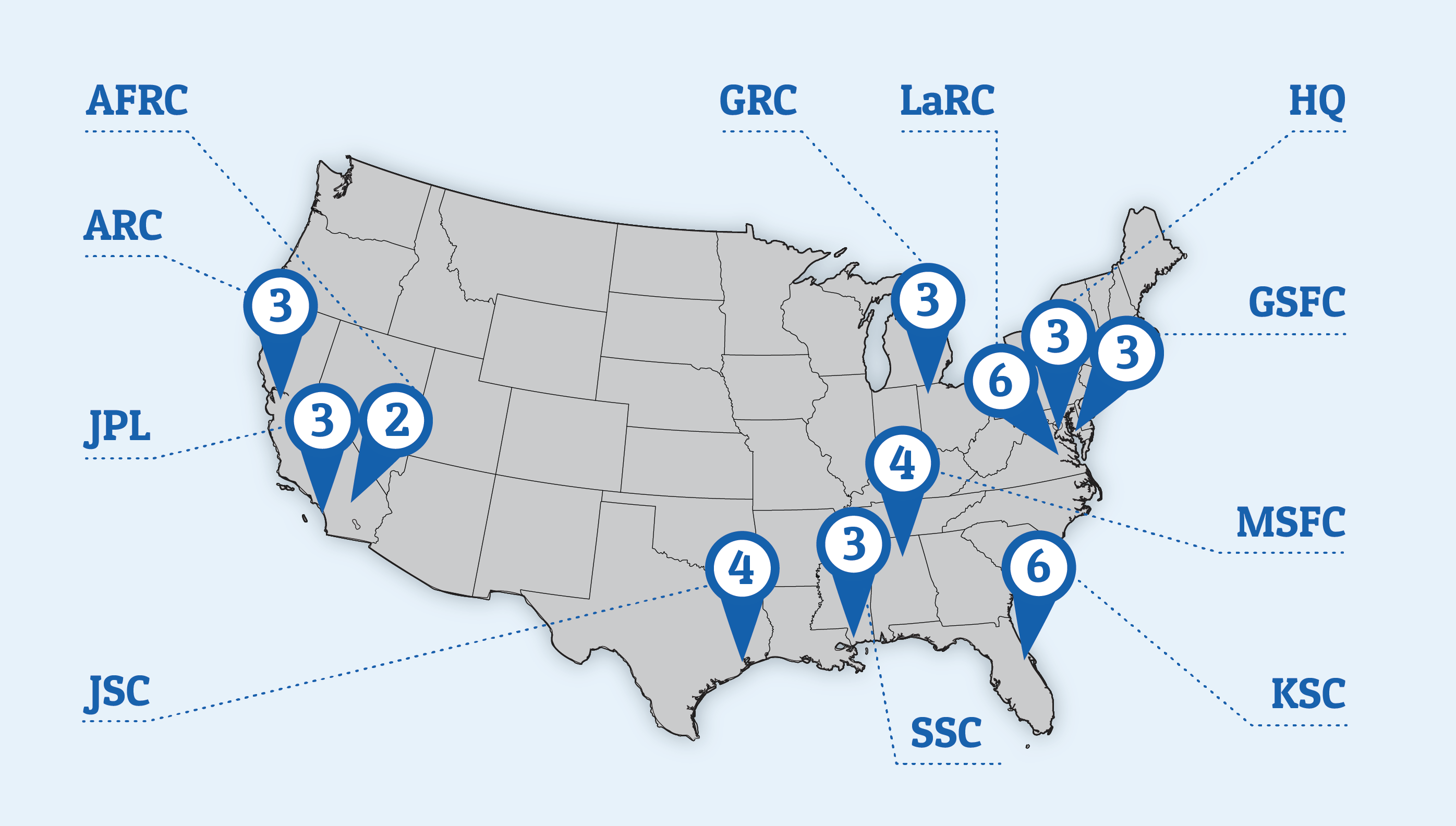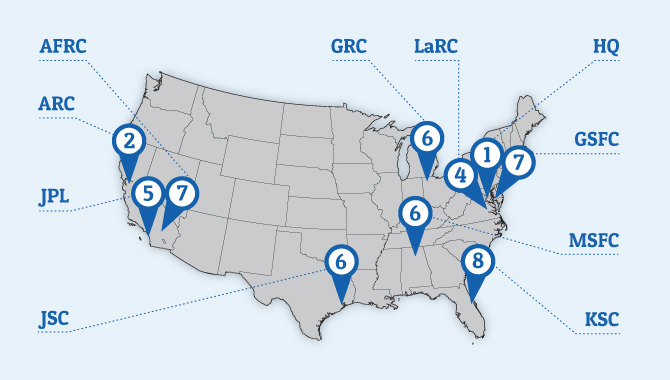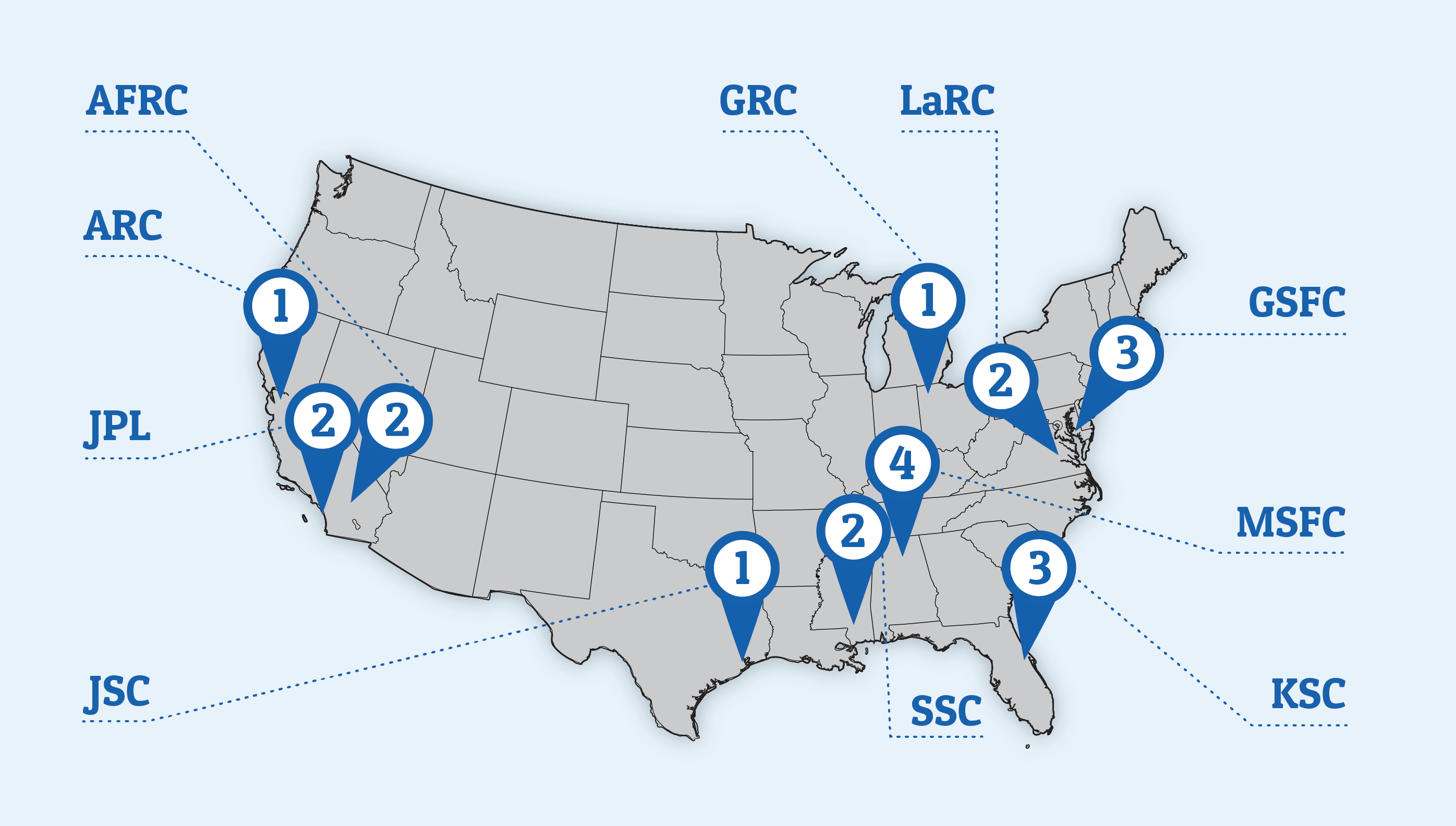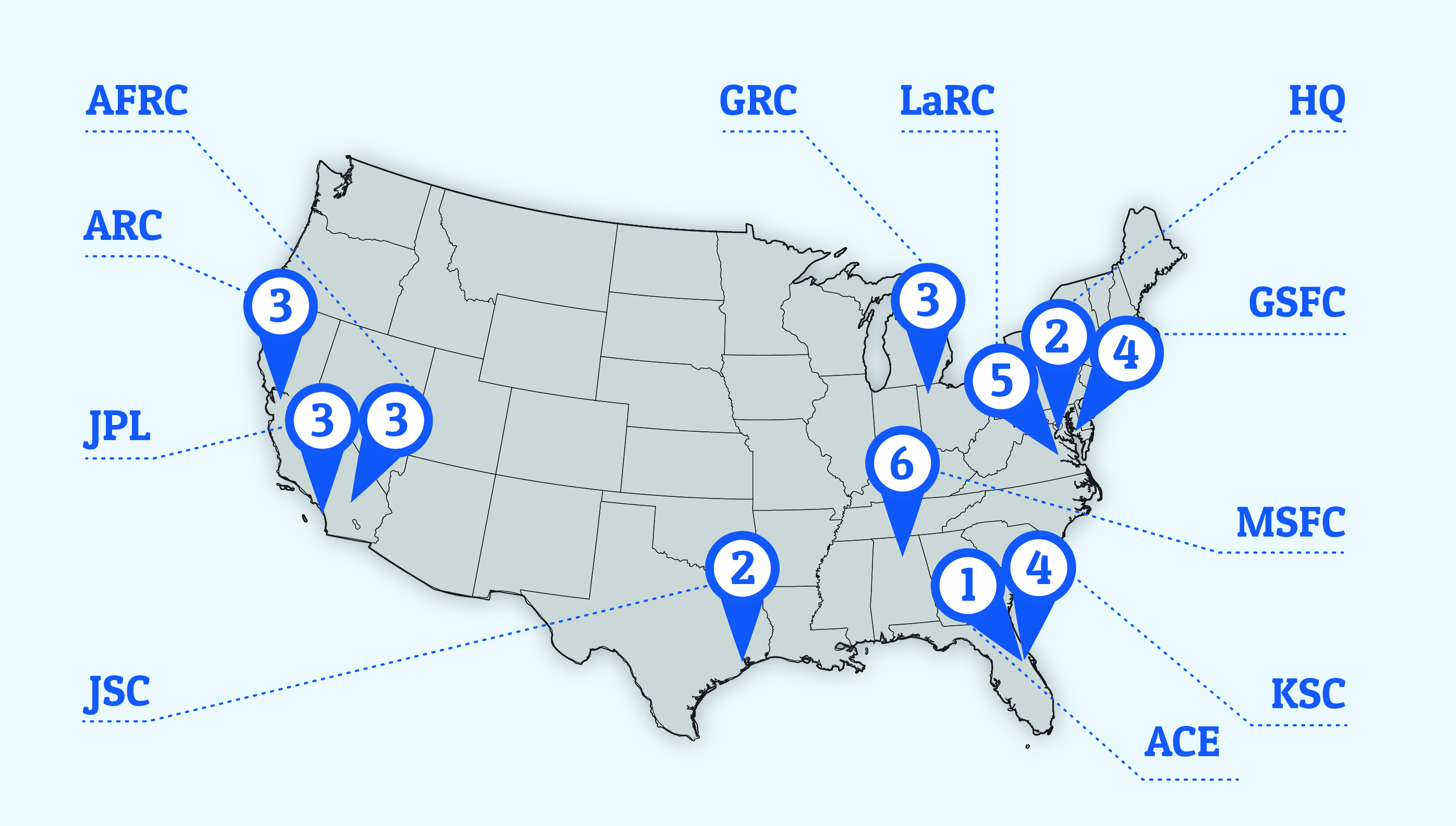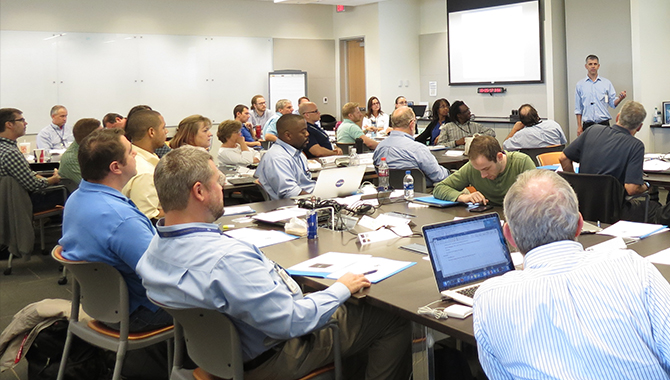
The Coronavirus pandemic forced APPEL Knowledge Services to cancel all face-to-face training and convert more than 80 percent of its courses—such as this one, Cognitive Bias in Engineering Decision-Making with instructor Matthew Kohut—to virtual delivery.
Credit: NASA/Donna Wilson
For the first quarter of FY 2019, APPEL Knowledge Services offers a wide range of courses to support the development of NASA’s technical workforce.
Members of NASA’s technical workforce will find opportunities to enhance their skills in team building, systems engineering, program and project management, risk management, and much more in the courses offered by APPEL Knowledge Services in the first quarter of FY 2019.
APPEL Knowledge Services, the recognized leader in agency-wide training for NASA’s technical workforce, will offer 31 courses during the first quarter of FY 2019. The first quarter is a strong start for FY 2019, when APPEL Knowledge Services will offer 131 courses at NASA’s centers around the country.
These courses, which are professionally designed and presented, specifically address the training objectives of the agency’s technical workforce, with material that is relevant to the project and mission needs of the agency.
Courses for the first quarter will begin the week of October 23, 2018. Highlights include:
Critical Thinking and Problem Solving
This three-day course presents the five types of critical thinking that can be leveraged within the NASA environment — strategic, tactical, analytical, innovative, and implicative. Participants practice using the different thinking approaches to help achieve maximum results, leading to mission success.
Before You Attend: This course requires pre-reading, which will be provided upon registration. This may include case studies, articles, and or chapters from relevant books. Pre-reading will align all attendees and prepare them for conversations and topics covered in the course.
Engineering Success and Failure Analysis Workshop
This three-day course focuses on advanced concepts of project management and systems engineering and their integration in the management of all phases and facets of the project. The learning methods include lecture, discussions, and the use of case studies to illustrate salient topics.
Before You Attend: This course requires pre-reading, which will be provided upon registration. This may include case studies, articles, and or chapters from relevant books. Pre-reading will align all attendees and prepare them for conversations and topics covered in the course.
Complex Decision Making in Project Management
The goal of this two-day course is to provide, through the examination of lessons learned from pertinent case studies, multiple opportunities for participants to exercise and improve their decision making and critical thinking skills during facilitated group discussions. The learning methods include lecture, discussions, and the use of case studies to illustrate and elaborate upon salient topics.
Before You Attend: This course requires pre-reading, which will be provided upon registration. This may include case studies, articles, and or chapters from relevant books. Pre-reading will align all attendees and prepare them for conversations and topics covered in the course.
Cognitive Bias in Engineering Decision-Making
This one-day course will use case studies to enable participants to identify the central role that poor communication and cognitive biases can play in mishaps, accidents, anomalies, and failures. The case study method will help participants understand how decision-making can be compromised at all levels in an organization through reliance on heuristics (mental shortcuts) such as groupthink, optimism bias, confirmation bias, and the normalization of deviance.
Systems Thinking Across the NASA Project Lifecycle
This two-day course will use a threaded case study to help participants define and utilize effective mental models to analyze and respond to challenges arising across the project lifecycle. Challenges from the following contexts will be addressed: systems thinking context, technical baseline context, and project management/safety and mission assurance context.
Model Based Systems Engineering (MBSE) Courses
A two-day course, Applied MBSE begins with a broad overview and then gives practitioners further understanding by focusing on the applications of MBSE. It examines the use of MBSE to support all 17 processes that form the NASA systems engineering “engine” across the program/project life cycle and features hands-on exercises to familiarize practitioners with MBSE tool use and application in a practical context.
Model-Based Systems Engineering Design and Analysis
For practitioners who desire a deep dive into the subject, this three-day course takes a step-wise approach to addressing the “why?” “what?” and “how?” of MBSE. It lays the foundation with a broad overview of MBSE, including its application for both team members and model developers. The course then delves into modeling languages so that participants can investigate various approaches (such as SysML) and examine key elements of syntax and application. Through hands-on exercises, attendees explore the practical uses of MBSE tools, with an emphasis on working with various models (importing, exporting, and reusing) to fully comprehend the applications and benefits of model simulations.
Find these and other exciting training opportunities in the APPEL Knowledge Services searchable Course Catalog. Users can search the catalog by category, NASA center, date, or title. To register for courses, NASA Civil servants and contractors must follow the SATERN self-registration process.






